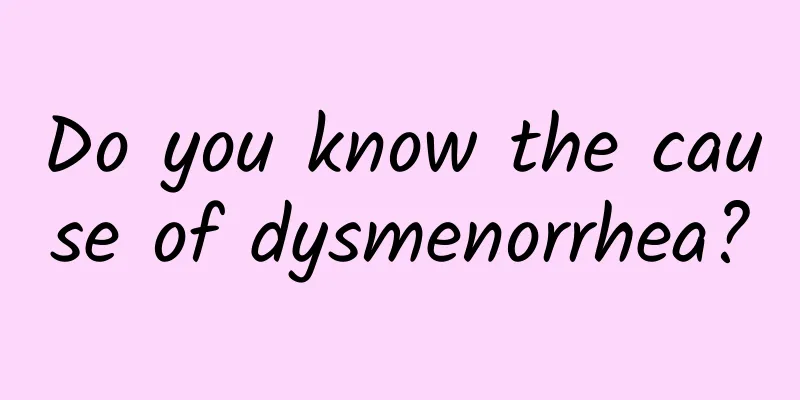What medicine should I take to treat uterine fibroids? What medicine is effective for uterine fibroids?

|
What medicine should be taken to treat uterine fibroids? This is a question often asked by many women with uterine fibroids. Uterine fibroids are a common gynecological disease. They are formed by the proliferation of smooth muscle cells in the uterus, which can cause symptoms such as irregular menstruation and dysmenorrhea. In severe cases, they may also cause infertility. In the process of treating uterine fibroids, drug therapy is a common method. So, what medicine is effective for uterine fibroids? At present, drugs for the treatment of uterine fibroids can be divided into two categories: hormonal drugs and non-hormonal drugs. Hormonal drugs mainly relieve symptoms and control the growth of fibroids by regulating female hormone levels. Commonly used hormonal drugs include estrogen and progesterone, such as estradiol and progesterone. These drugs can help relieve symptoms such as irregular menstruation and dysmenorrhea, and help reduce the size of fibroids. However, hormonal drugs also have side effects, such as breast tenderness, menstrual disorders, mood swings, etc., so they need to be used under the guidance of a doctor. Another type of non-hormonal drug is used to treat uterine fibroids by inhibiting their growth and causing them to shrink. The most commonly used non-hormonal drugs are oral long-acting receptor modulators (GnRH-a), such as dehydroandrostenone. These drugs can reduce the secretion of estrogen, thereby inhibiting the growth of fibroids and shrinking them. They are usually used in pre-operative treatment to reduce the difficulty of surgery and the amount of bleeding. In addition to the above drug treatments, traditional Chinese medicine is also widely used in the treatment of uterine fibroids. Traditional Chinese medicine improves the blood circulation in the body, promotes the absorption and excretion of fibroids, and alleviates related symptoms. Among the common traditional Chinese medicines, safflower, angelica, Chuanxiong, etc. have the effect of promoting blood circulation and removing blood stasis, and can be used as an auxiliary treatment for uterine fibroids. Drug treatment for uterine fibroids should be carried out under the guidance of a doctor. Usually, hormonal drugs and non-hormonal drugs are the main treatment options. Hormonal drugs can relieve symptoms, but they have more side effects; non-hormonal drugs can inhibit the growth of fibroids, but the effect on relieving symptoms is relatively weak. Chinese medicine, as an auxiliary treatment method, can also help relieve symptoms and promote the shrinkage of fibroids. When it comes to treating uterine fibroids, the specific circumstances of each patient are different. Therefore, when choosing drug treatment, you should follow the doctor's advice. Only through scientific and standardized treatment can you effectively control the disease and improve your quality of life. |
Recommend
Can color Doppler ultrasound be used to check for cervicitis? Color Doppler ultrasound should be used to check for cervicitis.
Cervicitis is a gynecological disease that has be...
The main causes of adnexitis in women
Adnexitis is a disease that many women often suff...
Several common manifestations of uterine fibroids in daily life
The appearance of uterine fibroids is also common...
The most obvious symptom of cervicitis is increased vaginal discharge.
The most obvious symptom of cervicitis is an incr...
What is the surgical plan for uterine fibroids? What are the surgical indications for uterine fibroids?
What is the surgical plan for uterine fibroids? W...
How to treat premature ovarian failure
Premature ovarian failure is a disease caused by ...
Treatment of right ovarian cyst
How to treat right ovarian cyst? Right ovarian cy...
Thin waist! 3 tips for office workers to improve their muscle endurance
The fat body is the nightmare of many women. Sitt...
Mushrooms are vegetable steaks ~ These 4 foods will help you get rid of the meat mine
Are you a meat lover? If I don’t eat meat, includ...
What should I do if I have severe pelvic effusion during pregnancy?
What should I do if I have severe pelvic effusion...
What ointment should be used for female vulvar itching
Generally speaking, female pruritus refers to itc...
What medicine to take to treat bacterial vaginosis
The key to treating bacterial vaginitis is to use...
What are the main causes of dysmenorrhea?
The most distressing thing for many women during ...
What are the causes of cervical erosion? Five causes of cervical erosion
One of the common causes of cervical erosion is l...
Symptoms of ovarian cyst torsion during pregnancy
Ovarian cyst torsion during pregnancy that causes...









